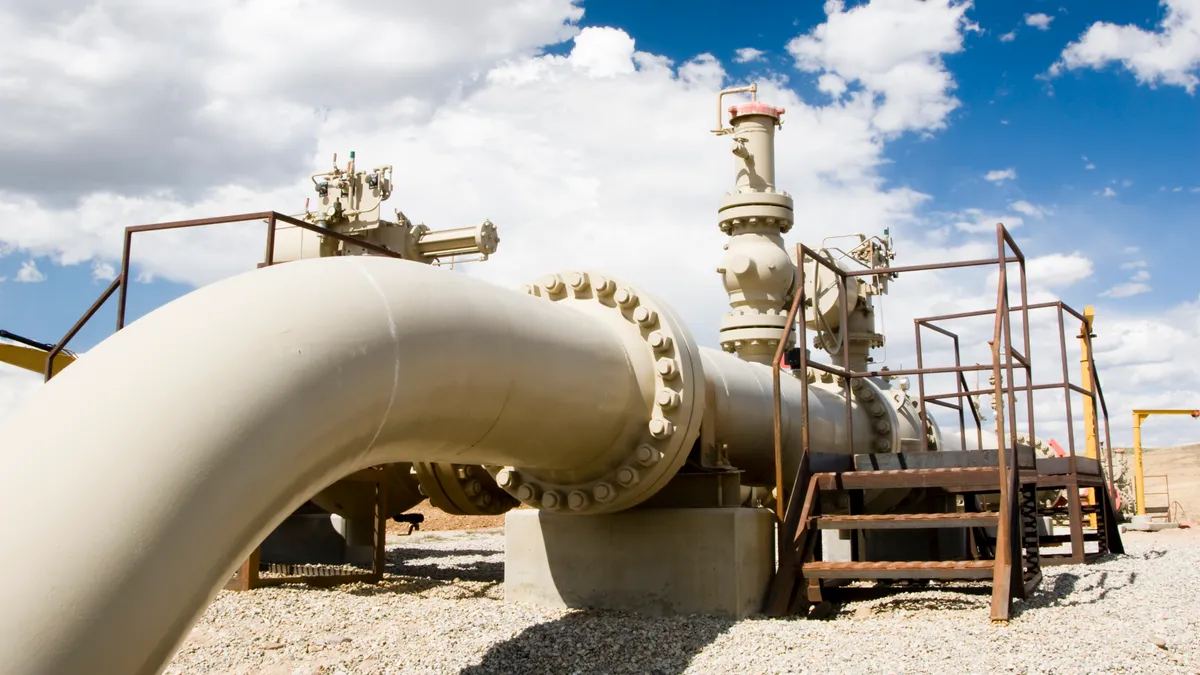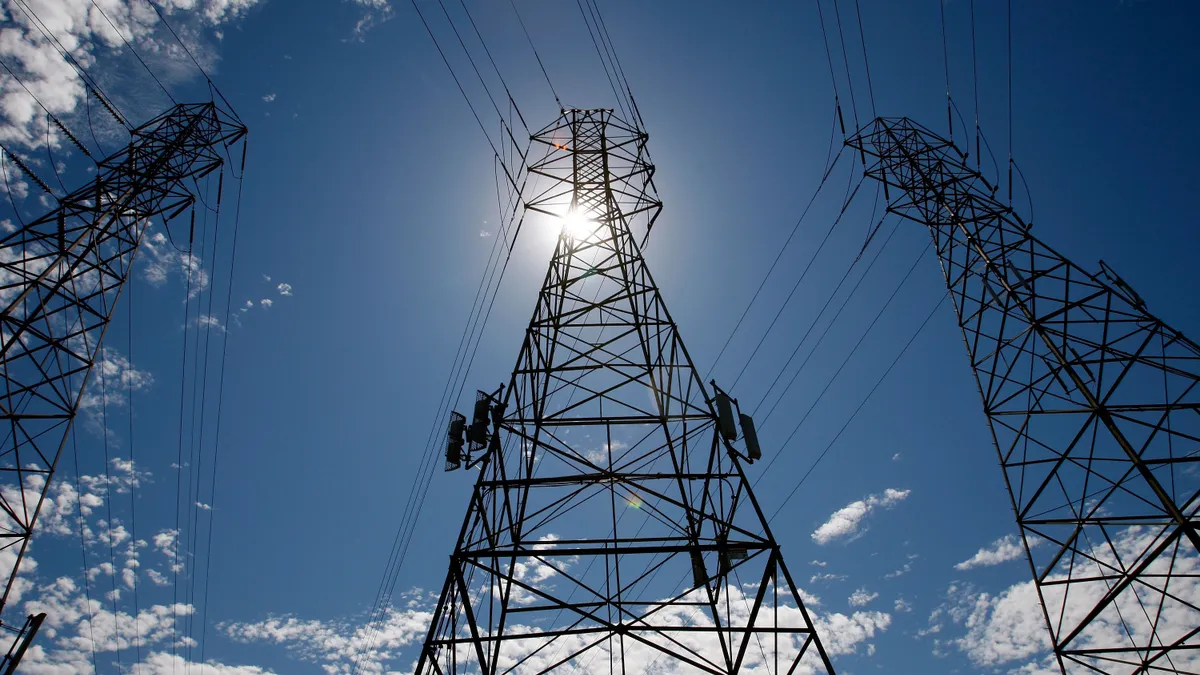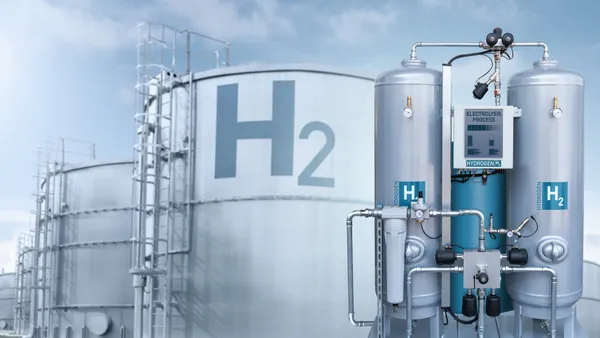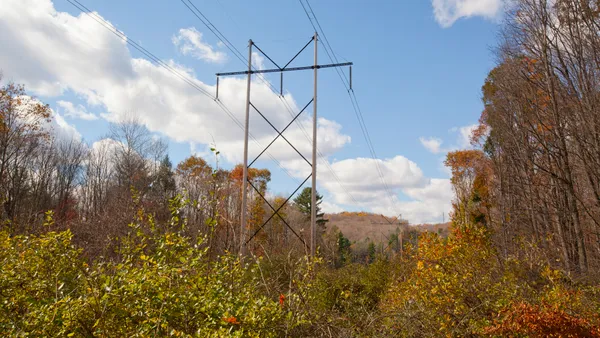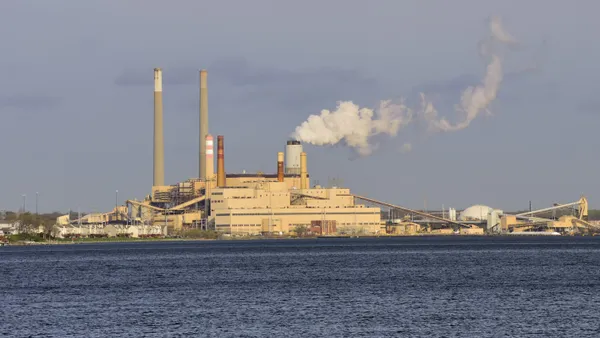Dive Brief:
-
The U.S. Court of Appeals for the District of Columbia Circuit on Tuesday vacated the Federal Energy Regulatory Commission’s approval of a roughly $950 million gas pipeline project built by a Williams Co. subsidiary.
-
FERC failed to explain why it dismissed studies showing that Transcontinental Gas Pipe Line Co.’s Regional Energy Access expansion project may not be needed, according to the court. Also, the commission’s decision not to determine the significance of the project’s greenhouse gas emissions was arbitrary and capricious, a three-judge panel said.
-
“The court recognized that FERC failed to adequately address critical market studies, ignored state laws requiring reductions in natural gas usage, relied on unsubstantiated claims, and ignored perverse financial incentives while relying on little more than precedent agreements,” Megan Gibson, chief counsel for the Niskanen Center, which represented several environmental groups and a landowner in the case, said in a press release.
Dive Insight:
The unanimous court decision comes as FERC has been grappling with how it reviews gas infrastructure projects, including whether they are needed as well as their impact on how they affect environmental justice communities and the climate.
In 2022, the agency, under former FERC Chairman Richard Glick, adopted a revised framework for reviewing gas pipelines and liquefied natural gas proposals. About a month later, FERC put the new policy statements on hold, amid criticism from pipeline companies, natural gas utilities and members of Congress. The agency continues to operate using a review policy set in 1999.
In January 2023, FERC approved the Regional Energy Access expansion project in Pennsylvania, New Jersey and Maryland, which is set to expand Transco’s pipeline capacity by 829,000 dekatherms a day to provide fuel to local gas utilities. About half the project’s capacity came into service late last year and FERC on Friday gave Transco permission to bring the project fully online by the end of this month.
Environmental groups such as the Delaware River Network and Sierra Club challenged FERC’s approval of the project. These groups also drew support from the New Jersey Division of Rate Counsel and eight state attorneys general.
One of the key issues in the dispute is whether the pipeline project is needed — a key element of gas project reviews under the Natural Gas Act.
In its decision, the court said FERC failed to explain why it entirely discredited the findings of two market studies, including one approved by the New Jersey Board of Public Utilities, showing that current pipeline capacity can meet New Jersey’s natural gas demands beyond 2030.
Typically, FERC relies on pipeline capacity contracts as a sign that a project is needed. But on the Transco project, FERC failed to explain how supply agreements with local gas utilities show there is a market need for the project if the utilities can sell unneeded pipeline capacity to others and pass on their pipeline costs to captive ratepayers, the court said.
“FERC also arbitrarily misconstrued New Jersey’s energy efficiency laws — which mandate sizable and continuous reductions to natural gas usage by public utilities — as unenforceable,” the court said. “To the contrary, New Jersey law is mandatory and includes mechanisms for its enforcement.”
On the issue of FERC’s assessment of the project’s GHG emissions, the agency found that they would impose social costs of $46 billion while the project’s downstream emissions could equal 39% of the total annual emissions budget of New Jersey and Maryland, according to the court.
FERC failed to explain its finding that it couldn’t judge the significance of those emissions, the court said. Also, FERC’s failure to meaningfully weigh the project’s benefits against its harms falls short of what is required by the Natural Gas Act and legal precedent, according to the court.
“FERC asserts that it adequately weighed the potential environmental harms of the project just by disclosing the project’s reasonably foreseeable GHG emissions,” the court said. “It calculated anticipated GHG emissions, listed harms expected due to climate change generally, and identified climate policy goals at international, national, and state levels — then seemingly swept the issue under the rug in its balancing, stopping short of explaining how anticipated GHG emissions factored in weighing the potential adverse impact against the potential benefit of the project.”
The appeals court said it vacated FERC’s decision approving the Transco project because it is unclear whether the agency will be able to fix the flaws in its order.
The disruption to the pipeline’s operations caused by vacating its approval is “significantly outweighed by the core deficiencies” in FERC’s decision and rehearing orders, the court said.
The court, however, didn’t immediately send its decision to FERC, according to ClearView Energy Partners. As is typical, it is giving the agency and Transco time to seek an appeal to the full court, the research firm said in a client note Tuesday.
FERC will likely issue an emergency certificate to Transco so the project can continue operating, given the upcoming 2024/2025 winter heating season and the slower-than-expected deployment of utility-scale renewable energy projects, ClearView said.
The court's decision doesn’t immediately affect the project, or delay Williams’ plans to place its full capacity into service, a company spokesman said in an email.
“We believe the court erred in vacating the certificate and we are taking the necessary legal and regulatory steps to address the court's concern and to ensure that this much-needed firm transportation capacity continues to be available to serve the needs of our customers without interruption,” the spokesman said.



